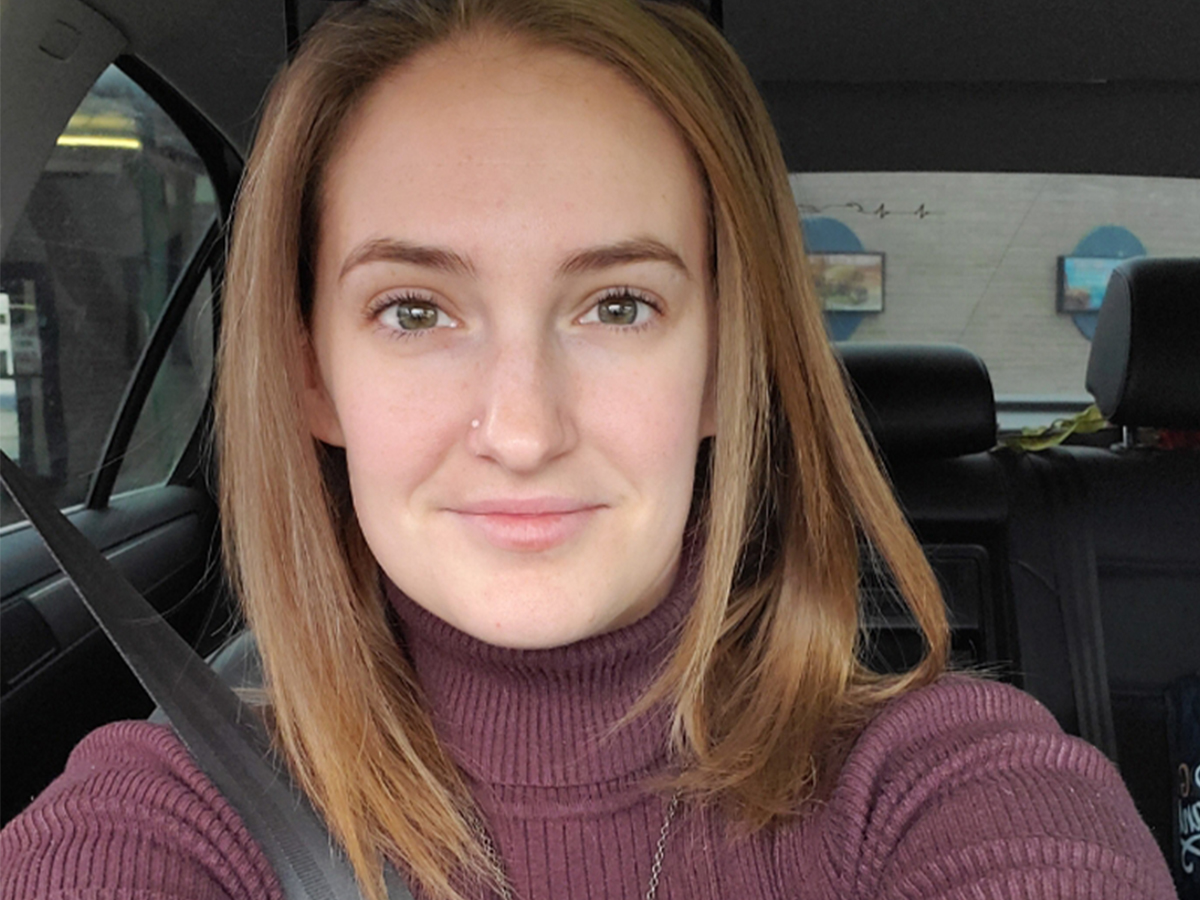In the midst of the COVID-19 pandemic, our frontline health care provides are the heroes we need. While we sit in the confines of our homes and practice social distancing through our 6-foot bubbles, nurses, doctors and medical staff are risking their lives for ours.
Meet Hanna Bates-Crosby, a senior getting her RN to BSN online at Wichita State University. She lives in Kansas City and works in the emergency room at a local hospital. For the past seven years she’s been fulfilling her career dreams.
“I like helping others, that’s the main reason I chose nursing,” she said.
After hearing and reading about the devastation taking place in New York City with full hospitals and overworked nurses, she knew she needed to step in and help.
“I wanted to go to New York to help and experience a pandemic in hopes of never having to work one again,” said Hanna.
Upon her arrival, the streets were bare, sidewalks empty and hospitals overpacked and low on supplies.
“I was the third wave sent to New York through a disaster relief program. It was mass chaos,” said Hanna.
New York City is ground zero for COVID-19, leading the pack with the most cases and deaths since the pandemic broke loose. Some patients are treated with a medication used to fight malaria as a hail Mary. There’s not a 100% chance of success but at least it’s something.
The only other known treatment for patients is oxygen, but once placed on a ventilator, patients often don’t recover. In the hospitals, patients are dying of organ failure with no cure insight.
“There’s not a lot we can do. Nurses are trained to help, but with COVID-19, we only can support your body fighting it off,” she said. “It’s not like we can make it go away with medicine or vaccines, which is the hard part.”
Even though her hospital wasn’t running low on supplies, her friends at different New York City hospitals witnessed the supply shortage firsthand. Some only allowed one mask per shift or worse, per week. Along with personal protective equipment, bio hazard bags, non-rebreather masks and critical medication are running low on stock.
“Being in New York showed me how bad the virus truly is. It’s not just the flu or for the elderly. Every age is being affected.”
During this unprecedented time, Hanna and other nurses are working overload for the sake of the community. While some root, cheer and clap for the health care industry, others turn their nose at the thought of social distancing, she says.
While most states are on a stay-at -home order, Hanna realizes that being cooped up in the house is hard, but she urges “we have to do it. If not for you, for your grandma, grandpa and individuals with weak immune systems.”
As a nurse, nothing frustrates her more than seeing individuals blatantly ignore social distancing and quarantine guidelines. When precautions are ignored, those infected unknowingly are spreading the virus to 2-3 people at a time.
“Don’t act like nothing is going on. That’s only going to prolong the stay-at-home orders.”
While New York has been hit the hardest with the virus, it’s still spreading throughout the Midwest. In Kansas, the flooding of hospitals won’t be immediate but cases will grow until the peak is reached, which is estimated for mid-May.
“I’m worried about Kansas City. It could easily become the next epicenter. I need to be able to help my hometown after my quarantine ends,” said Hanna.” I did my time in New York but It’s important I give my resources to KC.”
Hanna says while we ride the coronavirus storm to thank your health care providers for their strength and commitment.
“Humans are strong when forced to be. The last month has showed me the strength of the human spirit.”


 Courtesy
Courtesy